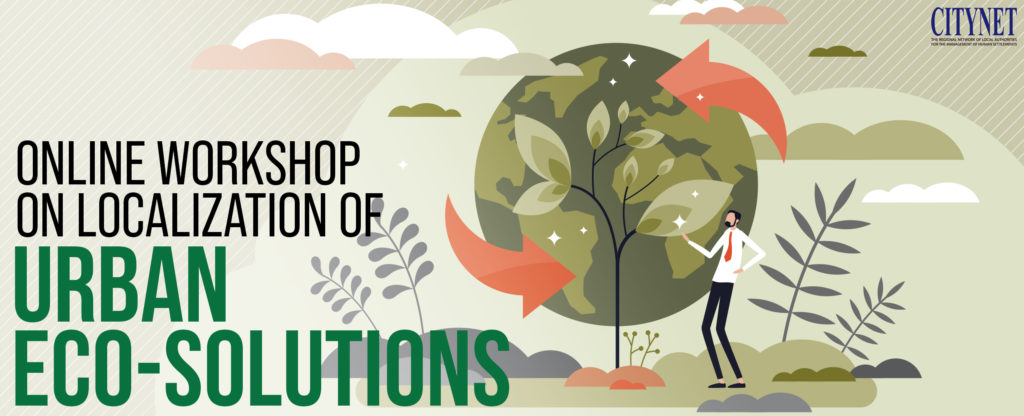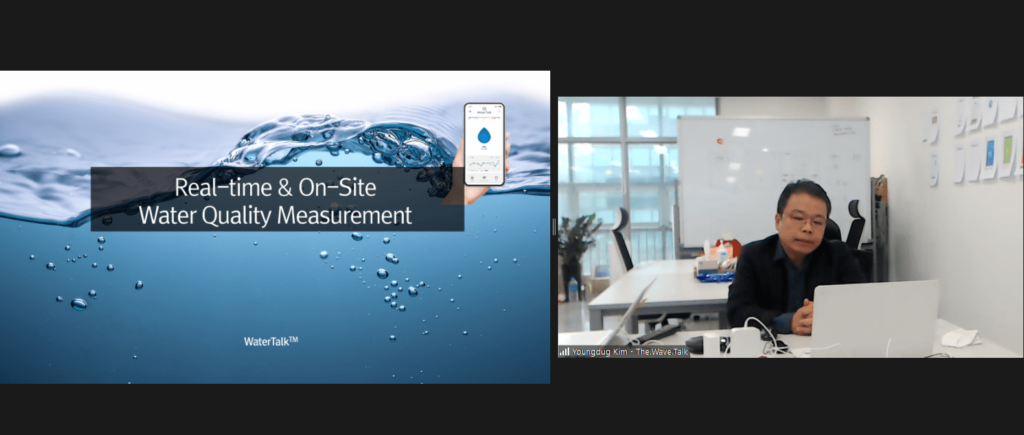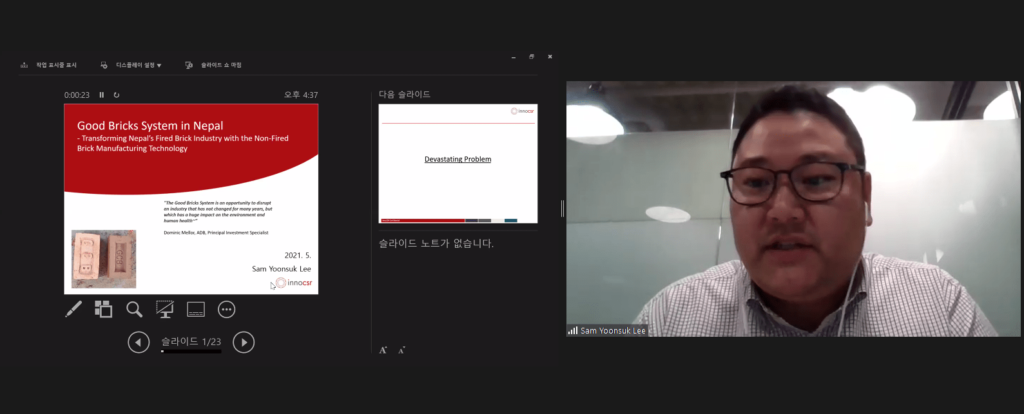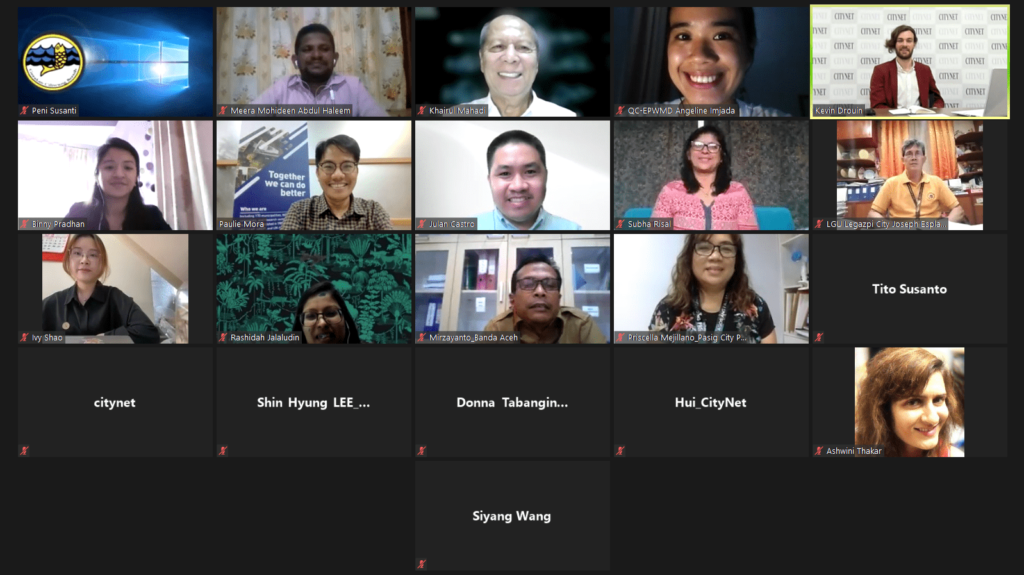
As part of the consultation series on the Localization of Sustainable Development Goals (SDGs), following a workshop on Smart Waste Management, CityNet held a workshop on the localization of urban eco-solutions on 10 May 2021. The session gathered city experts from China, India, Indonesia, Malaysia, Mongolia, Nepal, the Philippines, Sri Lanka, and Vietnam to learn about two private urban eco-solutions from Korean companies. The consultation helped generate feedback for the Toolkit on Localization of Urban Practices, which CityNet is refining through testing.
Paulie Mora, Senior Program Officer at CityNet, welcomed the participants and gave a short outline of the expected program after Chief Executive Officer Geunhyeong Yim’s opening remarks. Kevin Drouin, Program Officer, introduced the Toolkit along with an explanation of Seoul Metropolitan Government’s Owl Bus, giving participants a chance to see how the Toolkit can be applied to best practice case studies.

The first presenter, Mr. Youngdug Kim from The.Wave.Talk, shared how his company had seen a need in helping cities assure their citizens of the quality of water, which is a critical need for all people. By using tiny sensors that can link to phones and networks, called WaterTalk, people can be assured of their water quality, and if any problems occur, they can be identified before consequences run rampant. Mr. Kim shared how his goal is to eventually partner with international aid organizations to distribute these sensors to developing countries.

The second presenter, Mr. Sam Yoonsuk Lee from InnoCSR, shared how in Nepal, InnoCSR has helped implement the Good Bricks system. The Good Bricks system targets the brick kiln industry, which is a big contributor to global warming and climate change in South Asia. Through the Good Bricks system, which makes use of non-fired bricks that are created using soil stabilizers instead of being baked in kilns. The Good Bricks system is both better for the environment, as coal does not need to be burned for non-fired bricks, and more profitable, as the bricks take less time to make and can be made indoors.

Finally, the workshop was wrapped up with comments and feedback from participants, who shared their completed Toolkits and gave insight into how their different situations had led to their individual results. The valuable responses from city experts will help CityNet further refine the Toolkit, and participants were able to make a preliminary assessment on the suitability of these two best practices as solutions for their city.
CityNet Secretariat is currently pilot testing the toolkit with more sessions of the consultation series to be organized in the next few months. The Toolkit will be a standard feature in most capacity building activities and workshops by 2022.

